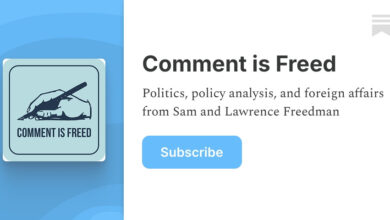How I Started Earning $750 a Month Just by Writing Like a Normal Human Being

Many people think writing for money means you need fancy words, perfect grammar every time, or even a degree in literature. They imagine strict rules and a stiff style. But what if the secret to making good money from writing was simply to sound like, well, you? What if genuine, human-like writing was exactly what clients wanted?
That’s the big idea that changed everything for me. This article shares my own path to consistently earning $750 a month. I did it by focusing on natural language and real connection, not forced formality. You don’t need to be a writing guru to achieve this. The methods are simpler than you might think.
The “Aha!” Moment—Realizing My Natural Voice Was My Superpower
Before, I always thought “professional” writing meant using big words. I’d grab my thesaurus to swap out simple terms for complex ones. But it felt fake and exhausting. Then, an epiphany dawned on me: could it be that expressing myself authentically in my writing could yield greater benefits?
Ditching the Thesaurus: Embracing Conversational Tone
I shifted from trying to sound like a textbook to writing as if I were chatting with a good friend. Clarity and relatability became my main goals. Readers want to understand you, not be impressed by your vocabulary. This change made writing more enjoyable and my words more impactful.
Try reading what you’ve written aloud. If it sounds stiff or hard to say, it probably is. Change those overly formal phrases until your words flow like natural speech.
Identifying My Niche (and Why Yours Matters)
Finding my own niche was a transformative experience. When I wrote about things I genuinely cared about, the words flowed easily. For me, that was explaining simple personal finance tips for beginners. It wasn’t just work; it felt like sharing constructive ideas.
Your niche could be anything that sparks your interest or where you have some expertise. Maybe you love reviewing indie video games, or perhaps you’re talented at breaking down healthy cooking recipes. Finding this spot makes connecting with your audience so much simpler.
Understanding Your Target Audience’s Language
Knowing who you’re writing for is vital. What words do they use? What problems do they face? How do they normally talk? Researching these things helps you speak directly to them.
Spend some time browsing forums, social media groups, or even comment sections related to your niche. Listen to how people express themselves there. This will give you giant clues about their communication style.
The Tools of the Trade (Beyond Word Processors)
You don’t need fancy software to start writing for money. A basic word processor is fine. What really matters are the platforms that connect you with paying clients. Knowing where to look makes a huge difference.
Content Mills vs. Direct Clients: Where the Real Money Is
Think of content mills as fast-food restaurants for writing. They pay very little per word, and you churn out a lot of content quickly. Getting clients directly, on the other hand, is like a sit-down meal. You might take longer to find them, but the pay per project is usually much higher. Focusing on direct clients means you get paid what your time and skill are truly worth.
Leveraging Freelance Platforms Effectively
Platforms like Upwork, Fiverr, or Contently can be gold mines. The trick is creating a profile that truly stands out. Don’t just list your skills. Show off your natural, human writing style right in your profile description. Your portfolio should feature samples that highlight this approach.
When sending proposals, please ensure they are personalized. Don’t use a generic template. Demonstrate to the client that you have understood their needs and clearly articulate how your unique style can assist them.
Building a Simple Online Presence
You don’t need a super fancy website to get started. Even a basic online portfolio or a well-kept LinkedIn profile can work wonders. This is your digital storefront. It’s a place where potential clients can see your work samples and get a feel for your writing voice.
For example, a simple portfolio might just have a few pages: an “About Me” that tells your story, a “Services” page, and a “Portfolio” section with links to your best writing pieces. It’s about showcasing what you do clearly and simply.
My Writing Workflow: Simplicity Breeds Success
My secret to consistent output isn’t a complex system. It’s about breaking down the writing process into manageable steps. This helps fight off overwhelm and keeps the words flowing.
From Idea to Draft: The “Just Write” Mentality
When I start a new piece, my goal is just to get thoughts onto the page. I don’t stop editing or worrying about perfection. This “just write” approach helps overcome writer’s block. It’s about capturing your ideas before they disappear.
Consider using a timer for focused writing blocks. The Pomodoro Technique, for instance, involves working for 25 minutes, then taking a 5-minute break. This can train your brain to concentrate and get words down without distractions.
The Art of Self-Editing: Polishing, Not Perfecting
Once the first draft is done, I switch gears to editing. This is where you clean things up, but you don’t erase your natural voice. Focus on making your points clear, ensuring a smooth flow, and cutting out extra words. The goal is to polish, not to make it sound robotic.
One common pitfall is editing too soon. Get your ideas out first. Then, read through it a day later with fresh eyes. This helps you spot awkward sentences or places where your message isn’t clear.
Meeting Deadlines and Client Expectations
Professionalism goes a long way. Always communicate clearly with your clients. Make sure you fully understand what they need before you start writing. And, of course, delivering your work on time is essential. Clients appreciate reliability more than anything.
Simple tools, even just a calendar, can help you keep track of deadlines and assignments. Staying organized means less stress and happier clients, which often leads to more work.
The $750 Milestone: Strategies for Consistent Income
Reaching $750 a month wasn’t magic. It came from smart pricing and building strong relationships. Consistency is key when you’re looking to turn writing into a reliable income stream.
Pricing Your Work Realistically
At first, I charged very little, often by the word. As I gained experience, I learned to value my time more. Now, I often quote project-based fees. This way, I get paid for the value I bring, not just how many words I type.
Do some research on what other writers with your experience charge. Look up industry standard rates for the type of writing you offer. This helps you set fair prices that reflect your skill.
Building Long-Term Client Relationships
Repeat business is the backbone of consistent income. When you deliver great work and are easy to communicate with, clients often come back for more. They might even put you on a retainer, meaning steady income each month.
I had a client who needed regular blog posts. Because I always met deadlines and delivered quality content, they kept sending work my way. This kind of relationship is way more reliable than constantly searching for new jobs.
Diversifying Your Income Streams (Within Writing)
Don’t limit yourself to just one type of writing. You could offer blog posts, but also website copy, email newsletters, or social media content. Expanding your services lets you appeal to more clients. It also protects you if one type of work slows down.
Overcoming Common Hurdles
Every writer faces challenges. It’s part of the journey. Understanding how to handle these obstacles enhances your strength and resilience.
Dealing with Rejection and Constructive Criticism
You will get feedback that isn’t always praise. You might even face outright rejection. Don’t take it personally. See it as a chance to learn and get better. Every piece of criticism is a step towards improvement.
It’s important to separate your work from your self-worth. One piece of writing doesn’t define who you are. Please concentrate on the insights you can gain from the feedback, and then proceed forward.
The Imposter Syndrome Struggle (and How I Fought It)
Many writers, even experienced ones, sometimes feel like they’re not good enough. This is called imposter syndrome. I’ve felt it too, especially when starting out. To fight it, I remind myself of my past successes. I focus on the value I’m providing to my clients.
It’s natural to doubt yourself occasionally. Remember that your unique voice is a strength. Everyone starts somewhere. Celebrate how far you’ve come.
Finding Your Motivation When It Wanes
Some days, writing feels like a chore. The words just won’t come. When motivation dips, I take a short break or switch to a different task. Sometimes, just changing your environment helps.
Celebrate your small wins. Did you finish a tough paragraph? Did you meet a deadline? Acknowledge these little victories. Also, remind yourself often of why you started this journey and what your goals are.
Conclusion
Earning money by writing naturally is totally achievable. It means focusing on being clear, connecting with your audience, and putting in consistent effort. Forget the fancy words; just be yourself on the page.
AAnyone can develop these skills and embark on their own writing journey. YYou don’t need years of formal training or a special degree to succeed. Start by writing like a normal human being, and watch how your words begin to earn for you.
…
Thank you for reading! 🌷
🙌 If you enjoyed this story, don’t forget to follow my Vocal profile for more fresh and honest content every day. Your support means the world!
Source link




